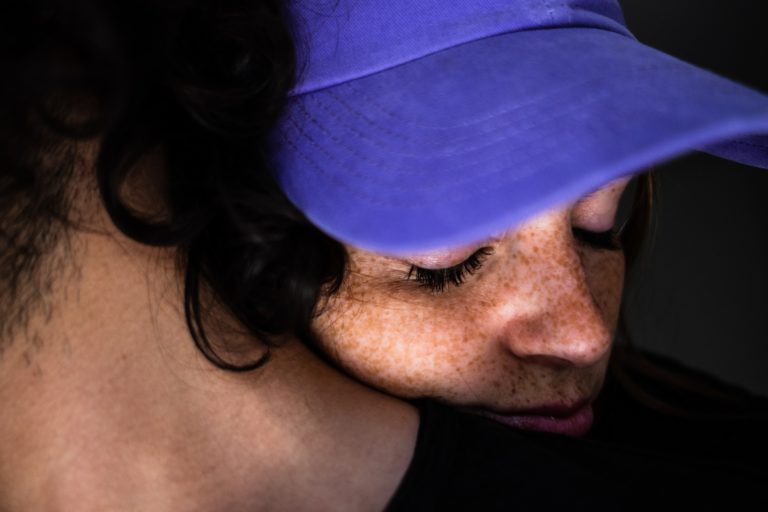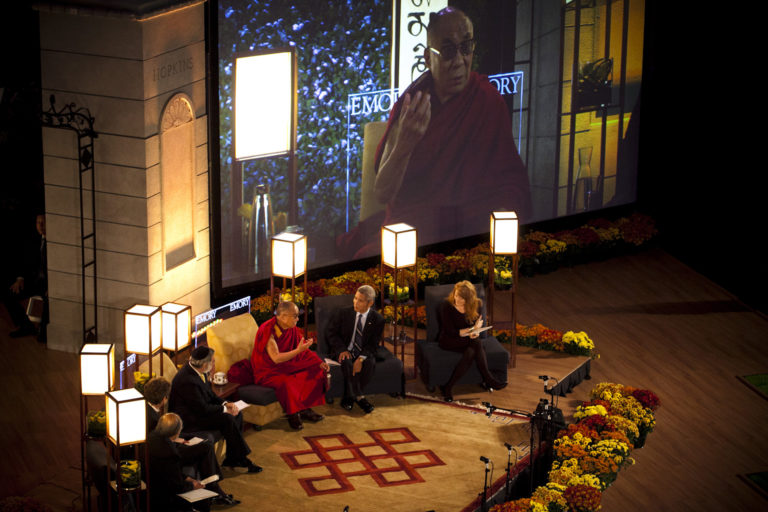Courage is born out of vulnerability, not strength. This finding of Brené Brown’s research on shame and “wholeheartedness” shook the perfectionist ground beneath her own feet. And now it’s inspiring millions to reconsider the way they live, parent, and navigate relations with members of the opposite gender.
Podcasts
View
- List View
- Standard View
- Grid View
912 Results
In a probing and personal conversation, Reza Aslan opens a refreshing window on religion in the world and Islam in particular. It’s a longer view of history and humanity than news cycles invite — certainly when it comes to the Arab Spring, or to ISIS. His life is a kind of prism on the fluid story of religion in this century. But in a globalized world, we all have a personal stake in how this story unfolds.
Computer scientist Bernard Chazelle has an original take on what music works in us — especially the music of Johann Sebastian Bach. Just as mathematicians talk about discovering rather than inventing great equations, so, he says, Bach set out to “discover” the musical rules behind the universe. After hearing this conversation, you may never listen to any piece of music — whether Bach or Jay-Z — in quite the same way again.
October 23, 2014
Nadia Bolz-Weber
Seeing the Underside and Seeing God: Tattoos, Tradition, and Grace
She’s the tattooed, Lutheran pastor of the House for All Sinners and Saints in Denver, a church where a chocolate fountain, a blessing of the bicycles, and serious liturgy come together. She’s a face of the Emerging Church — redefining what church is, with deep reverence for tradition.
For over a decade, the French-American anthropologist Scott Atran has been listening to the hopes and dreams of young people from Indonesia to Egypt. He explores the human dynamics of what we analyze as “breeding grounds for terrorism” — why some young people become susceptible to them and others, in the same circumstances, do not. His work sheds helpful light on the question on so many of our minds as we watch horrific news of the day: How could this happen — and how could we possibly help transform it?
If journalism is a primary way we tell the story of ourselves and our time, Michel Martin is a person helping us tell that story — and take part in it — more completely. Her daily NPR program Tell Me More was often labeled as “diversity” or “minority” programming. But in fact, she and her journalism are about a more generous and realistic sweep of who we are now — and how we’re creating our life together anew. At the Chautauqua Institution, we mine her wisdom on the emerging fabric of human identity.
The third in a four-part series, “The American Consciousness.”
September 25, 2014
His Holiness the 14th Dalai Lama of Tibet, Jonathan Sacks, Katharine Jefferts Schori, and Seyyed Hossein Nasr
Pursuing Happiness
The XIV Dalai Lama seems to many to embody happiness — happiness against the odds, a virtue that is acquired and practiced. Before a live audience in Atlanta, Georgia, Krista had a rare opportunity to mull over the meaning of happiness in contemporary life with him and three global spiritual leaders: a Muslim scholar, a chief rabbi, and a presiding bishop. An invigorating and unpredictable discussion exploring the themes of suffering, beauty, and the nature of the body.
Imani Perry is a scholar of law, culture, race — and hip hop. She acknowledges wise voices who say that we will never get to the promised land of racial equality. She writes, “That may very well be true, but it also true that extraordinary things have happened and keep happening in our history. The question is, how do we prepare for and precipitate them?” We took her up on this emboldening question at the Chautauqua Institution, on the cusp of yet a new collective reckoning with the racial fabric of American life.
The first in a four-part series, “The American Consciousness.”
Dan Barber is a celebrated young chef — but his passionate ethics and intellect have made him much more. He’s out to restore food to its rightful place vis-à-vis our bodies, our ecologies and our economies. And he would do this by resurrecting our natural insistence on flavor.
What Adele Diamond is learning about the brain challenges basic assumptions in modern education. Her work is scientifically illustrating the educational power of things like play, sports, music, memorization, and reflection. What nourishes the human spirit, the whole person, it turns out, also hones our minds.
He bestowed the title “Mahatma” on Gandhi. He debated the deepest nature of reality with Einstein. He was championed by Yeats and Pound to become the first non-European to win the Nobel Prize for Literature in 1913. Rabindranath Tagore was a polymath — a writer and a painter, a philosopher and a musician, and a social innovator — but much of his poetry and prose is virtually untranslatable (or inaccessibly translated) for modern minds. We pull back the “dusty veils” that have hidden his memory from history.
Yoga has infiltrated law schools and strip malls, churches and hospitals. This 5,000-year-old spiritual technology is converging with 21st-century medical science and with many religious and philosophical perspectives. Seane Corn takes us inside the practicalities and power of yoga. She describes how it helps her face the darkness in herself and the world, and how she’s come to see yoga as a form of body prayer.
For the Fourth of July, a refreshing reality check about the long road of American democracy. We remember forgotten but fascinating, useful history as we contemplate how we might help young democracies on their own tumultuous paths now.
Who knew that we learn empathy, trust, irony, and problem solving through play — something the dictionary defines as “pleasurable and apparently purposeless activity.” Dr. Stuart Brown suggests that the rough-and-tumble play of children actually prevents violent behavior, and that play can grow human talents and character across a lifetime. Play, as he studies it, is an indispensable part of being human.
As the daughter of Johnny Cash, singer-songwriter Rosanne Cash describes her life as “circumscribed by music.” But, it’s through her love of language and quantum mechanics that she’s finding new sources of creativity and mathematical ways to think about the divine. The mother of five shares her perspectives on being present, Twitter as a “boot camp for songwriters,” and how she wrestles with love and grief through her music.
Fairy tales don’t only belong to the domain of childhood. Their overt themes are threaded throughout hit TV series like Game of Thrones and True Blood, Grimm and Once Upon a Time. These stories survive, says Maria Tatar, by adapting across cultures and history. They are carriers of the plots we endlessly re-work in the narratives of our lives — helping us work through things like fear and hope.
The idea of reciting an unchanging creed sounds suspicious to modern ears. But the late, great historian Jaroslav Pelikan illuminated ancient tradition in order to enliven faith in the present and the future. He insisted that strong statements of belief will be necessary if pluralism in the 21st century is to thrive. We take in his moving, provocative perspective on our enduring need for creeds.
An astrophysicist who studies the shape of the universe, Janna Levin has also explored her science by writing a novel about two pivotal 20th-century mathematicians, Kurt Gödel and Alan Turing. Both men pushed at boundaries where mathematics presses on grand questions of meaning and purpose. Such questions, she says, help create the technologies that are now changing our sense of what it means to be human.
The Pause
Join our constellation of listening and living.
The Pause is a monthly Saturday morning companion to all things On Being, with heads-up on new episodes, special offerings, event invitations, recommendations, and reflections from Krista all year round.
Search results for “”
View
- List View
- Standard View
- Grid View
Filters



